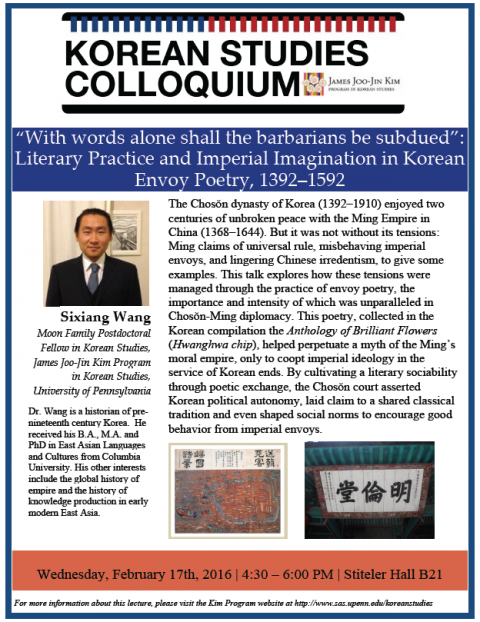
Korean Studies Colloquium
Stiteler Hall, Room B21
Sixiang Wang, Moon Family Postdoctoral Fellow in Korean Studies, James Joo-Jin Kim Program in Korean Studies, University of Pennsylvania
The Chosŏn dynasty of Korea (1392–1910) enjoyed two centuries of unbroken peace with the Ming empire in China (1368–1644). But it was not without its tensions: Ming claims of universal rule, misbehaving imperial envoys, and lingering Chinese irredentism, to give some examples. This talk explores how these tensions were managed through the practice of envoy poetry, the importance and intensity of which was unparalleled in Chosŏn-Ming diplomacy. This poetry, collected in the Korean compilation the Anthology of Brilliant Flowers (Hwanghwa chip), helped perpetuate a myth of the Ming’s moral empire, only to coopt imperial ideology in the service of Korean ends. By cultivating a literary sociability through poetic exchange, the Chosŏn court asserted Korean political autonomy, laid claim to a shared classical tradition, and even shaped social norms to encourage good behavior from imperial envoys.
 James Joo-Jin Kim Center for Korean Studies
James Joo-Jin Kim Center for Korean Studies